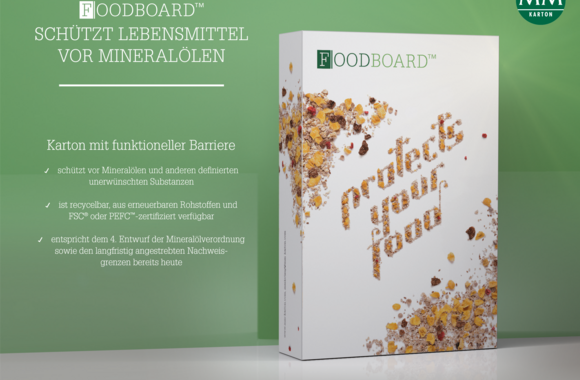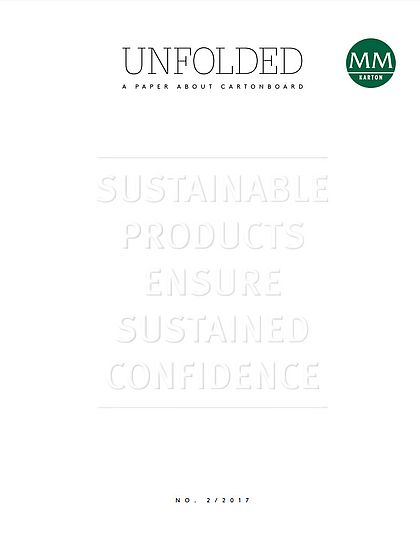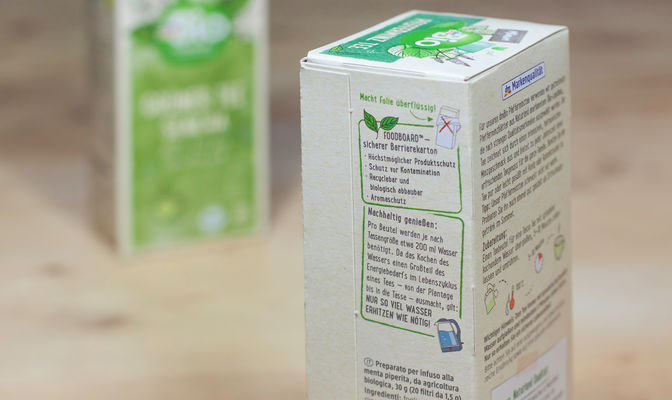Fourth draft of German Mineral Oil Regulation published
28.06.2017 - FOODBOARD™, Barriers
On 24 February 2017, the German Federal Ministry of Food and Agriculture (German: Bundesministerium für Ernährung und Landwirtschaft, BMEL) presented the latest draft regulation "22nd Ordinance for amendments to the regulation of food contact materials (mineral oil regulation). As expected, a functional barrier will be obligatory as an effective solution to migration - FOODBOARD™ ensures highest product safety for packed food.
Fourth draft of the Mineral Oil Regulation calls for barrier
With this draft, the authority is now focusing entirely on Mineral Oil Aromatic Hydrocarbons (MOAH) and the migration from the food contact material into the foodstuff. § 6a (1) stipulates “…, that no Mineral Oil Aromatic Hydrocarbons migrate from the food contact material into foodstuffs.”
The maximum migration value into food has been defined with a limit of 0.5 mg/kg MOAH (C16 to C35). § 6a (1) states: "Up to a detection limit of 0.5 milligrams of the sum of Mineral Oil Aromatic Hydrocarbons per kilogram food or food simulant, a migration is deemed not to have occurred."
"The long-term intended detection limit of 0.15 milligrams per kilogram food / food simulant for the migration of MOAH from food contact materials can currently not be achieved for every foodstuff." The only reason mentioned for the temporary higher limit is the current restriction in available analytic capabilities.
The distributor is responsible to ensure compliance with the relevant migration limit values. "§ 6a (1) Food contact materials made out of paper, paperboard or cartonboard using recovered paper may only be produced and placed on the market if a functional barrier in accordance with § 2 (9) ensures that no Mineral Oil Aromatic Hydrocarbons are migrating from the food contact material into foodstuffs.”
A functional barrier as defined by § 2 (9) is: "a) one or more layers or coatings of a food contact material or b) the wrapping of a foodstuff.”
Furthermore, the authority differentiates between conditions of applications or nature of the foodstuff itself where no migration is expected. The authorities cite frozen food, table salt and dry food with short-term contact as example of this.
In summary, we can say: Taking into consideration the whole supply chain, the total migration of the food packaging in retail shelves must be below the current migration limit of 0.5 mg/kg MOAH (C16 to C35), otherwise a functional barrier for food packaging has to be used.
Timeline
Industry and associations had the opportunity to comment on the draft until mid-April 2017. Then there may be a further hearing or changes may be made to the draft. A vote within the German ministries must also be held. Experience shows that a possible subsequent EU notification process and coordination with WTO can take up to one year. Similar to the printing ink regulation it is possible that the EU is striving for a Europe-wide regulation. The fourth draft of the mineral oil regulation calls for a transition period of one and a half years after promulgation.
Sustainable, functional barrier solution from MM Karton: FOODBOARD™
Since the mineral oil subject became known, Mayr-Melnhof Karton has taken the lead in working on a solution with a team of experts and in consultation with the German authorities with the aim of the highest possible consumer protection. With FOODBOARD™, our cartonboard with functional barrier, we offer a sustainable packaging solution, which protects your product from mineral oil migration, and already complies with the aspired future limit of mineral oil migration.
The ecological benefits of a sustainable packaging economy are further guaranteed by the use of FOODBOARD™: FOODBOARD™ is a mono-material, a pure cartonboard solution from renewable raw materials, and not an extruded or laminated compound – the cartonboard is therefore fully recyclable and bio-degradable. The innovative barrier cartonboard is available with FSC® or PEFC certification.
If you are interested in FOODBOARD™ or have further questions, please contact our team of experts at FOODBOARD@mm-karton.com.
Interested? Datasheet and Samples of
FOODBOARD™ can be found here:
PRODUCT CATALOGUE



![[Translate to English:] [Translate to English:]](/fileadmin/_processed_/9/4/csm_4_Gewinner_7ba52790a9.jpg)
